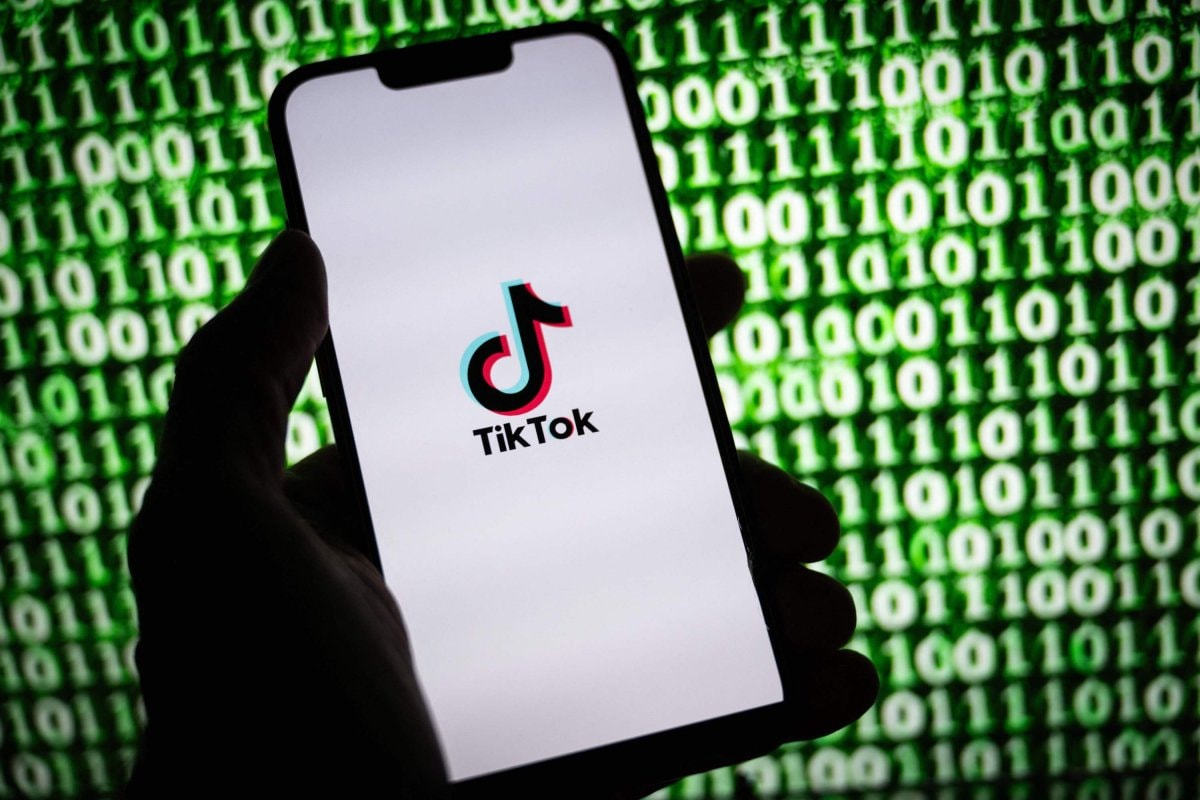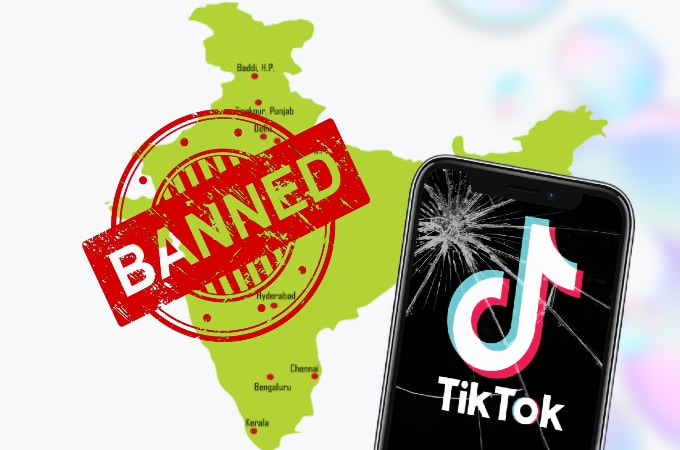TikTok faces legal backlash in many countries around the world
TikTok is not only fighting a ban or a sale to a new owner in the US, but over the years, the app has faced legal and political battles in at least 20 other countries around the world.
TikTok is facing pressure from countries around the world. In Russia, the app was fined for failing to remove banned content. In Romania, the presidential election results were annulled over concerns that TikTok was being used to spread foreign influence.
Meanwhile, Albania has imposed a year-long ban on TikTok following a high-profile incident in which a teenager was stabbed to death following an online argument. "Either TikTok protects Albanian children, or Albania will protect children from TikTok," Prime Minister Edi Rama said on social media platform X.
.jpg)
In the US, where TikTok has about 150 million users, the app and its Chinese-based parent company ByteDance are petitioning the Supreme Court to strike down a law that could lead to a forced sale or outright ban of TikTok.
TikTok has come under increasing legal and political pressure globally in recent years, with the app being fully or partially banned in at least 20 countries as governments grow concerned about its close ties to China and its growing influence, particularly among younger generations.
Despite facing criticism and intense scrutiny, TikTok has maintained its global appeal. Currently, the app has more than 1 billion monthly active users, becoming an indispensable part of many people's digital lives.
Many countries are concerned about the potential risks that TikTok may pose.
From Montana to New Zealand, officials have warned of potential risks TikTok could pose, including inciting violence, spreading misinformation and negatively impacting mental health.
Additionally, lawmakers have expressed concerns that TikTok could share user data, such as location and browsing history, with the Chinese government, raising serious privacy and security concerns.
Albanian Prime Minister Edi Rama stressed that “young people need to be protected from the terrifying pitfalls of algorithms” and he expressed a clear view on the responsibility to protect the younger generation from the potential negative effects of the platform.
TikTok has dismissed the concerns surrounding the app as overblown. In a statement, the company said it has dedicated teams to preventing unwanted influence operations, and that it does so transparently. TikTok's algorithm is designed to "maintain content neutrality," ranking posts based on the interests expressed by users, rather than any bias.

The company also stressed that TikTok’s parent company, ByteDance, is majority-owned by global investors. However, the Chinese government has said it reserves the right to object to any transfer or sale of TikTok, further escalating tensions in the global debate.
TikTok represents a double-edged sword in the global business landscape of Chinese companies. The app has not only proven that a new entertainment model, originating in China, can resonate around the world, but has also become a focus of opposition.
The controversy has also extended to other prominent Chinese apps like e-commerce platforms Temu and Shein, raising questions about privacy, data security and competition in the global market.
"It seems that today, every Chinese entrepreneur needs to equip themselves with knowledge of political science or international relations to be able to navigate the road ahead," said Kevin Xu, founder of Interconnected Capital, a US-based hedge fund that invests in artificial intelligence (AI) technology.
Meanwhile, Jianggan Li, CEO of Momentum Works, a Singapore-based consultancy, pointed out that other global internet product companies, such as Meta and Google, are also subject to close scrutiny from many countries.
But as US companies, they don't face the level of suspicion that TikTok faces in the eyes of Western politicians and regulators, Mr. Li stressed.
These comments highlight the unique challenges facing TikTok and other Chinese tech companies as they expand globally, amid increasingly complex international relations.
India and Nepal: Completely ban TikTok
A ban in the US could cost TikTok one of its most important markets. But TikTok has faced a more serious loss in the past, losing its largest user base at the time. In 2020, the Indian government banned TikTok after simmering geopolitical tensions between India and China escalated into a military conflict at their shared border.

Following the ban, TikTok was removed from app stores and its official website was blocked, forcing creators who relied on the app for a living to turn to other platforms to rebuild their audiences. While some homegrown alternatives emerged, the biggest beneficiaries were US tech giants. Both YouTube and Instagram now have twice as many users in India as they do in the US.
In neighboring Nepal, TikTok was also removed for nearly a year because the app refused to restrict what the government deemed “hate speech” that harmed “social harmony.” The ban was finally lifted in August 2024, after Prime Minister KP Sharma Oli took office for the fourth time and assumed the reins of government.
Russia and Indonesia: Fines and forced cooperationwith local companies
The Russian government has repeatedly fined TikTok for allowing content that violates the country’s strict censorship rules, including sensitive topics like sex, gender and feminism. The two most recent fines issued by Russian courts in the past six months totaled around $90,000.
Meanwhile, in Indonesia, Southeast Asia’s largest country, TikTok launched an online shopping service, hoping to become a new source of revenue. Indonesia has roughly the same number of TikTok users as the US, demonstrating the huge potential of this market. However, in 2023, the Indonesian government passed a law requiring TikTok to shut down its online shopping operations within days.
To stay afloat, TikTok was forced to merge its online shopping division with Tokopedia, Indonesia’s largest e-commerce company. The move left many TikTok Shop owners struggling to rebuild their customer base.
For TikTok, however, this challenge also brings a significant benefit: access to Tokopedia's robust logistics network, including a fleet of delivery drivers and shipping services optimized to deliver goods across Indonesia's 17,000 islands.
Taiwan, UK, Canada and other countries: TikTok blocked on government devices
Some governments are trying to balance security concerns about TikTok with protecting free speech.
In Taiwan, the app has been banned on government devices since 2019. However, officials say they have no plans to impose a blanket ban, as this could impact the country's distinctive culture of public debate.
Similarly, countries such as the UK, Australia, France, along with the European Union executive and the New Zealand Parliament, also imposed moderate restrictions.
In Canada, TikTok has been banned from government-issued mobile devices, citing national security concerns stemming from its ties to ByteDance. Last November, the Canadian government also directed TikTok to close its offices in the country.
In a document filed in a Canadian court last month challenging the bans, TikTok said the government had asked the company to delay completing the relevant legal proceedings, pending a final decision by the US on how to proceed with the company.
These moves reflect countries' efforts to find a balance between protecting national security and upholding free speech values, while also dealing with the challenges posed by TikTok in an increasingly complex international political landscape.

.jpg)
.jpg)


